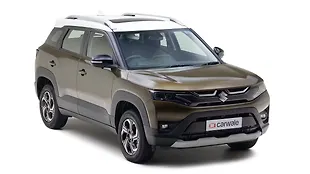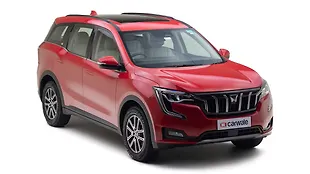Introduction
![Mahindra Bolero [2000-2007] Front View Mahindra Bolero [2000-2007] Front View](https://imgd.aeplcdn.com/0x0/statics/grey.gif)
Purchasing a used car is a smart way to own a vehicle without burning a hole in your pocket. Whether you're buying your first car or replacing an old one, a used car can offer great value. But if you don’t have the full amount in hand, financing becomes necessary. Luckily, there are several ways to get a second hand car loan in India. This guide breaks down your options and what to keep in mind for a stress-free purchase.
1. Decide Your Budget First
Before looking at loans, know how much you can comfortably spend. Factor in not just the car's price, but also insurance, registration, servicing, and loan EMIs. A clear budget avoids over-borrowing and helps you shortlist the right vehicles. Also, online EMI calculators are simple tools that let you test different loan amounts, interest rates, and tenures to ensure you pick a used car loan that doesn’t stretch your monthly budget.
2. Explore the Right Lending Option for You
Used car loans in India are available through banks, NBFCs (Non-Banking Financial Companies), and dealer-linked financiers. Banks often offer lower interest rates but may have stricter approval processes and longer paperwork. NBFCs, on the other hand, tend to be more flexible and faster, though they might charge slightly higher rates. If you're buying from a pre-owned car dealer, they might have tie-ups with finance companies that offer on-the-spot loan options- convenient but sometimes costlier. It's always wise to compare the total cost, including interest, processing fees, and repayment flexibility, before making your choice.
3. Know Your Loan Eligibility
Your age, income, employment type, and CIBIL score affect your eligibility for a used car loan. Most banks need salaried individuals to earn at least Rs. 2.5 to Rs. 3 lakh per year. Self-employed applicants must show regular income. If your CIBIL score is above 700, you’re more likely to get a better deal. Some banks offer pre-approved car loans to existing customers. These are usually quicker to process and may offer lower interest rates.
4. Check the Car’s Age and Condition
Most lenders won’t finance cars older than about 10 years. Also, if the car is in poor shape or lacks complete paperwork, your used car loan might be denied. Pick a car that is well-maintained and not too old for easier approval.
5. Interest Rates Aren’t the Only Costs
While the interest rate grabs attention, it's not the only cost attached to a loan. Lenders usually charge a processing fee—typically between 1-3 per cent of the loan amount. If you plan to repay the loan earlier than the agreed tenure, there may be prepayment or foreclosure charges. Also, missing or delaying EMIs could invite steep penalties. These extra costs can quietly inflate your overall repayment amount. So, don’t just look at the EMI; read the fine print and understand the full cost of borrowing.
6. Think about Getting Loan Insurance
Loan protection insurance can cover your EMIs if you face a job loss, accident, or serious illness. While it’s optional, it may offer peace of mind during uncertain times.
7. Finalise Your Lender After Thorough Research
Shortlist two or three lenders and request loan quotes. Don’t blindly accept the first offer. Even a 0.5 per cent difference in interest rate can save you money over time.
8. Keep All Documents in Order
Being organised with your documents can help speed up your loan approval. Lenders usually ask for identity proof (like Aadhaar or PAN card), address proof, income documents (such as salary slips or IT returns), and recent bank statements. Apart from this, car-related documents like the RC (Registration Certificate), insurance papers, and PUC certificate (Pollution Under Control) may also be needed. Having everything ready and up to date reduces back-and-forth and makes the process quicker and smoother.
Conclusion
Financing a used car in India isn’t as tricky as it seems, provided you do a bit of homework. Always start with a realistic budget, compare your loan options, and read all terms carefully. Whether you go through a bank, NBFC, or dealer, the right loan can help you own your dream car without draining your savings. Smart planning today means peace of mind tomorrow.























